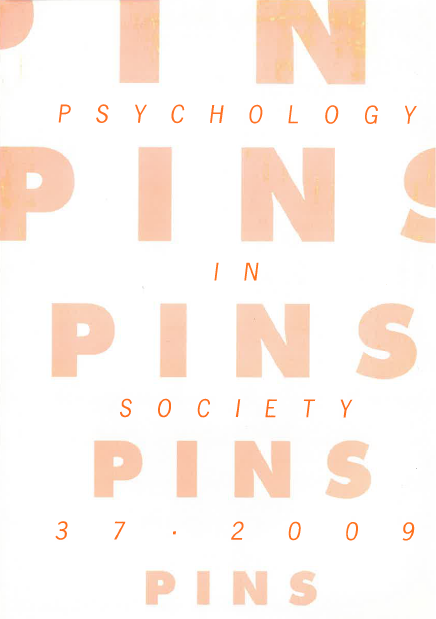THE FIVE FACTOR MODEL OF PERSONALITY AND INDIVIDUALISM / COLLECTIVISM IN SOUTH AFRICA: AN EXPLORATORY STUDY
DOI:
https://doi.org/10.17159//2309-8708/2009/n37a3Keywords:
collectivism, culture, five factor model, language, individualism, personality, raceAbstract
The Five-Factor Model (FFM) of personality is one of the prominent models in contemporary psychology and defines personality in terms of five broad factors, namely, Neuroticism, Extraversion, Openness to Experience, Agreeableness, and Conscientiousness. Recent research, however, questions the comprehensiveness of the FFM with evidence indicating the presence of other factors not addressed in the FFM most notably Individualism/Collectivism. Therefore, this study investigated the relationship of the FFM of personality to Individualism/Collectivism in a sample of 176 students from the University of the Witwatersrand using the Basic Traits Inventory and the Individualism/Collectivism scale. Results indicate that there were no significant relationships between the five factors and Individualism/Collectivism. In addition no significant difference was found between race and the five factors and Individualism/Collectivism. There were also no significant differences between home language and the five factors and Individualism/Collectivism.
Downloads
Downloads
Published
How to Cite
Issue
Section
License
This journal is an open access journal, and the authors' and journal should be properly acknowledged, when works are cited.
Authors may use the publishers version for teaching purposes, in books, theses, dissertations, conferences and conference papers.
A copy of the authors’ publishers version may also be hosted on the following websites:
- Non-commercial personal homepage or blog.
- Institutional webpage.
- Authors Institutional Repository.
The following notice should accompany such a posting on the website: “This is an electronic version of an article published in PINS, Volume XXX, number XXX, pages XXX–XXX”, DOI. Authors should also supply a hyperlink to the original paper or indicate where the original paper (http://www.journals.ac.za/index.php/pins) may be found.
Authors publishers version, affiliated with the Stellenbosch University will be automatically deposited in the University’s’ Institutional Repository SUNScholar.
Articles as a whole, may not be re-published with another journal.
The copyright of the article(s) lies with the author(s).
The copyright of the journal lies with PINS-psychology in Society.
The following license applies:
Attribution CC BY-NC-ND 4.0 - https://creativecommons.org/licenses/by-nc-nd/4.0/

